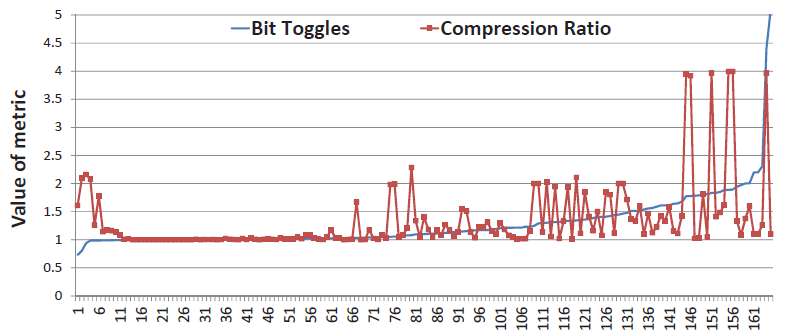Toggle-aware Compression for GPUs

Memory bandwidth compression can be an effective way to achieve higher system performance and energy efficiency in modern data-intensive applications by exploiting redundancy in data. Prior works studied various data compression techniques to improve both capacity (e.g., of caches and main memory) and bandwidth utilization (e.g., of the on-chip and off-chip interconnects). These works addressed two common shortcomings of compression: (i) compression/decompression overhead in terms of latency, energy, and area, and (ii) hardware complexity to support variable data size. In this paper, we make the new observation that there is another important problem related to data compression in the context of the communication energy efficiency: transferring compressed data leads to a substantial increase in the number of bit toggles (communication channel switchings from 0 to 1 or from 1 to 0). This, in turn, increases the dynamic energy consumed by on-chip and off-chip buses due to more frequent charging and discharging of the wires. Our results, for example, show that the bit toggle count increases by an average of 2.2× with some compression algorithms across 54 mobile GPU applications. We characterize and demonstrate this new problem across a wide variety of 221 GPU applications and six different compression algorithms. To mitigate the problem, we propose two new toggle-aware compression techniques: energy control and Metadata Consolidation. These techniques greatly reduce the bit toggle count impact of the six data compression algorithms we examine, while keeping most of their bandwidth reduction benefits.
Publication Date
Research Area
External Links
Uploaded Files
Copyright
This material is posted here with permission of the IEEE. Internal or personal use of this material is permitted. However, permission to reprint/republish this material for advertising or promotional purposes or for creating new collective works for resale or redistribution must be obtained from the IEEE by writing to pubs-permissions@ieee.org.
